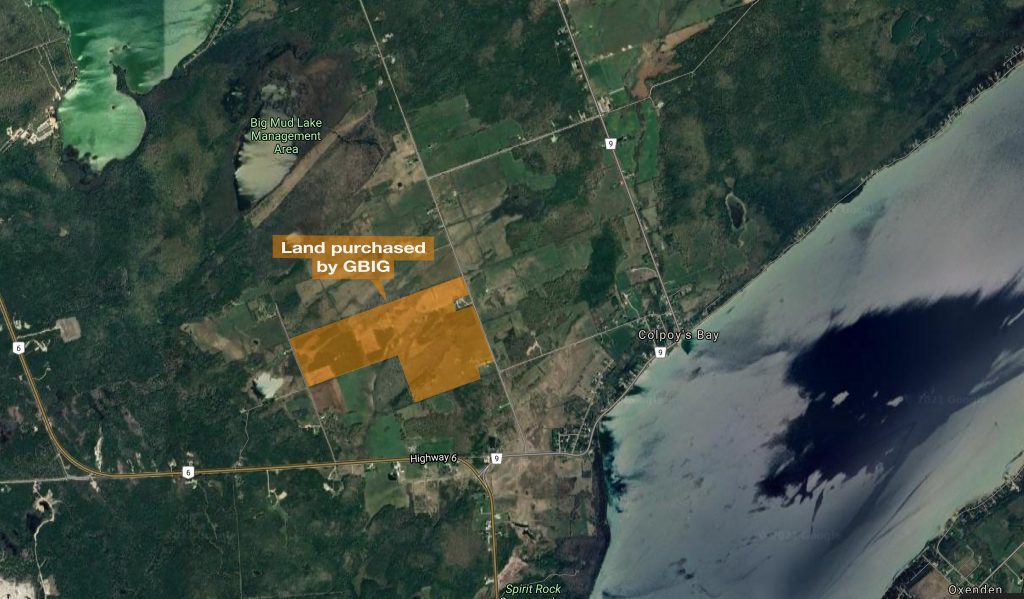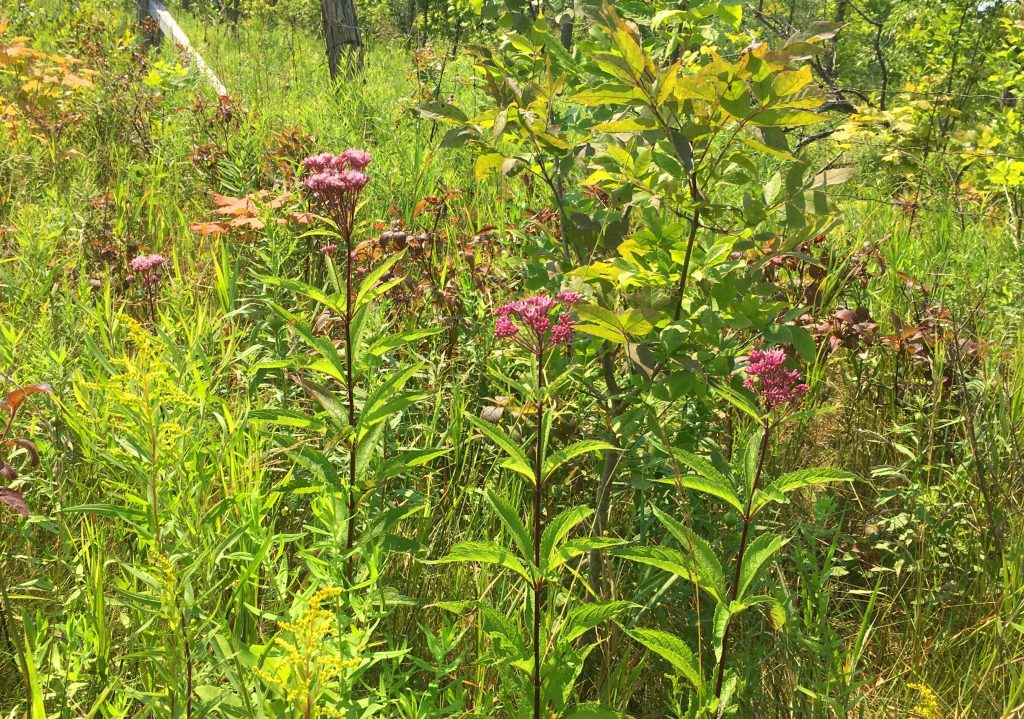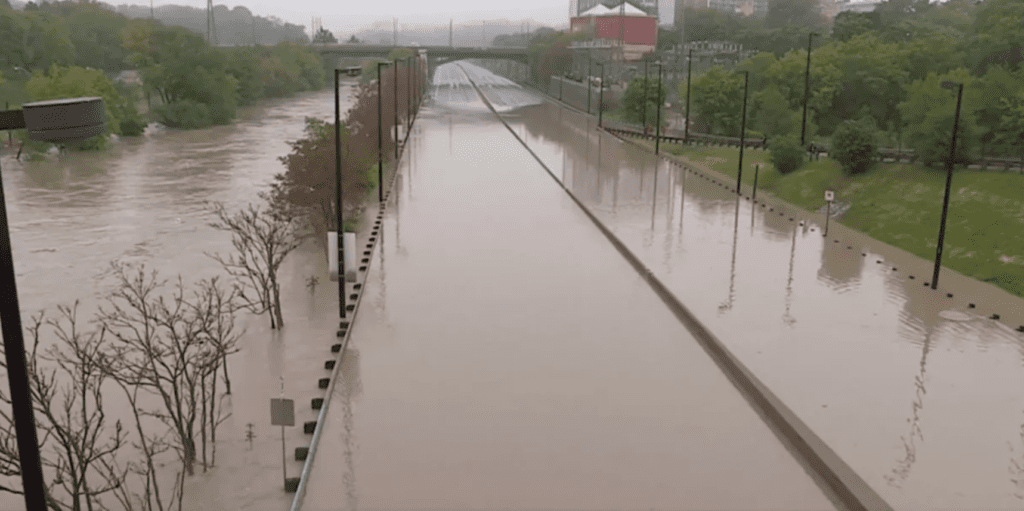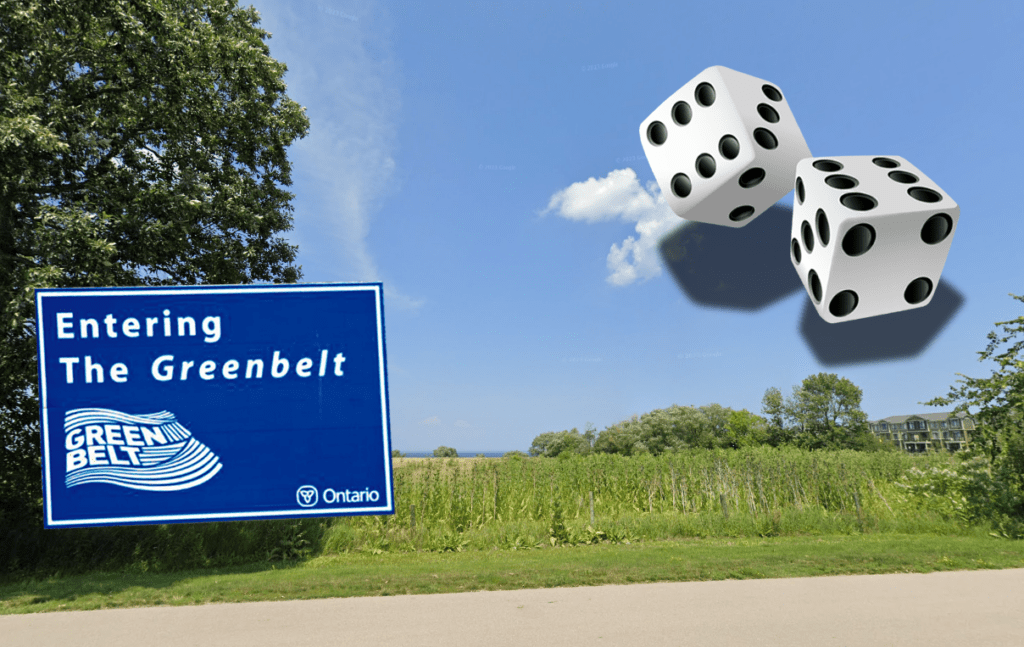This is a guest blog by Gwen MacGregor from Bruce Peninsula Water Watch
There is a point on Bruce County Road 9 just north of Wiarton where a bay comes into full view at the top of a hill. Depending on the time of year and the weather, the water is a deep blue colour punctuated with the whitecaps of waves or glass-like bands of turquoise, green and indigo. This is Colpoys Bay, on the western shores of Georgian Bay, part of the Bruce (Saugeen) Peninsula and it is under threat of being irrevocably contaminated.
In June 2021, South Bruce Peninsula City council, in a private, ‘in camera’ session, approved the zoning application for the development of a piece of agricultural land on the north shore of Colpoys Bay into an ‘aquafarming’ facility. This is the term used for land-based fish farming but it has little to do with farming or fishing. Georgian Bay Initiative Group, a newly formed, Toronto based company that put in the zoning application to city council, intends to develop a facility on the bay to produce Atlantic salmon.


Based on the little information that is available on the company’s website, they intend to draw more than 50,000 litres of water daily, directly from Colpoys Bay. The water would be used for the fish tanks in the 500,000 sq. ft. facility (11.5 acres) and then returned to the bay. The company claims to have the technology to ‘scrub’ the water of 98 per cent of contaminants before returning the water to Colpoys Bay.
This industry does not have a good track record in terms of their environmental responsibility and their ability to adequately control the contaminants that would be added to the bay. Even if their goal of 98 per cent ‘scrubbed water’ is achieved, with the volume of water they are proposing to use, there would be an unacceptable amount of contaminants entering the bay and into the ecosystem of Georgian Bay.
The contaminants could include amongst other things: fish waste, antibiotics and sedatives given to the fish to keep them calm. There is no mention anywhere of the change in water temperature that would occur in the tanks and if that can be corrected before the water is returned to the bay. Also, not mentioned, is how the rest of the waste will be disposed of safely, the amount of energy that would be needed to pump the water in and out of the bay, the destruction of microbes and tiny lifeforms from the bay sucked up into the plant, and the extent of other noise and odour caused by the facility.


The Ontario Ministry of Natural Resources and Forestry has issued an aquaculture license but there will have to be an environmental assessment and further permits from the federal Ministry of the Environment, before any water can be drawn from the bay. The Saugeen Ojibwa Nation (SON) Environmental Office has confirmed they have also been approached by the company and will be conducting their own assessment.
This proposal needs to be zoned as an industrial complex, making it inappropriate for any region that is zoned as rural. Allowing it to be built would set a very dangerous precedent for South Bruce and other rural municipalities. Broader questions also need to be asked about the future of sustainable fishing practices and in light of continuing climate change, if land-based ‘aquafarming’ is what we collectively want to support, near Georgian Bay or anywhere else in Canada.


Instead of subsidizing industrial fish farming, we need to be supporting and protecting sustainable fishing practices that will help build a sustainable future for generations to come. Everyone’s voice is important and you can contribute by visiting and sharing Facebook and Instagram pages for the Bruce Peninsula Water Watch (a group of residents who have come together to oppose this fish factory). There is also a wealth of information and links to elected official’s emails at www.smellsfishy.org, as well as a link to a petition. It is not too late to stop this proposal if we work together and make it clear to all levels of government that industrial land-based fish farming is not part of the sustainable future we envision.







